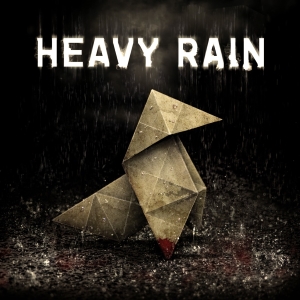He might have a point if by story you restrict yourself to traditional notions of narrative.
But, those are inherently linear, so of course an interactive environment is kind of at odds with that idea.
However, I think games have a great potential to examine a concept from multiple angles.
Like, instead of saying:
"This is a story about a hero who saves the universe", which is what books, plays and films might do...
We can say this instead.
"This is an exploration of what is possible if you task someone with saving the universe from this kind of threat."
It's a scenario, rather than a story.
The difference is basically the difference between going from a one dimensional shape, to a two dimensional one.
You no longer have a fixed story, but a range of possible stories that could all happen.
But... For this to work as a concept, you have to let go of a few things.
Like forcing a specific narrative out of it.
You can give shape to the scenario, and encourage certain directions by what you choose to make possible, and what you don't...
But you can't force a specific narrative on it, because then, yes, you are sort of using the abilities of gaming badly.
Even the most linear of games is a study in choice, and alternatives. Even if those choices are very restricted.
You simply end up with a linear chain of very small scenarios.
You can do whatever within those scenarios, but they are joined together in an inflexible manner.
An open world game is almost the opposite. One huge scenario, with smaller, more restricted parts strewn about almost at random.
A game is a good choice for exploring a story if you have multiple perspectives to show, perhaps less so if you have one, and only one way you want something to work, but regardless I would think it's a bit of an over-statement being made here.
But, those are inherently linear, so of course an interactive environment is kind of at odds with that idea.
However, I think games have a great potential to examine a concept from multiple angles.
Like, instead of saying:
"This is a story about a hero who saves the universe", which is what books, plays and films might do...
We can say this instead.
"This is an exploration of what is possible if you task someone with saving the universe from this kind of threat."
It's a scenario, rather than a story.
The difference is basically the difference between going from a one dimensional shape, to a two dimensional one.
You no longer have a fixed story, but a range of possible stories that could all happen.
But... For this to work as a concept, you have to let go of a few things.
Like forcing a specific narrative out of it.
You can give shape to the scenario, and encourage certain directions by what you choose to make possible, and what you don't...
But you can't force a specific narrative on it, because then, yes, you are sort of using the abilities of gaming badly.
Even the most linear of games is a study in choice, and alternatives. Even if those choices are very restricted.
You simply end up with a linear chain of very small scenarios.
You can do whatever within those scenarios, but they are joined together in an inflexible manner.
An open world game is almost the opposite. One huge scenario, with smaller, more restricted parts strewn about almost at random.
A game is a good choice for exploring a story if you have multiple perspectives to show, perhaps less so if you have one, and only one way you want something to work, but regardless I would think it's a bit of an over-statement being made here.

